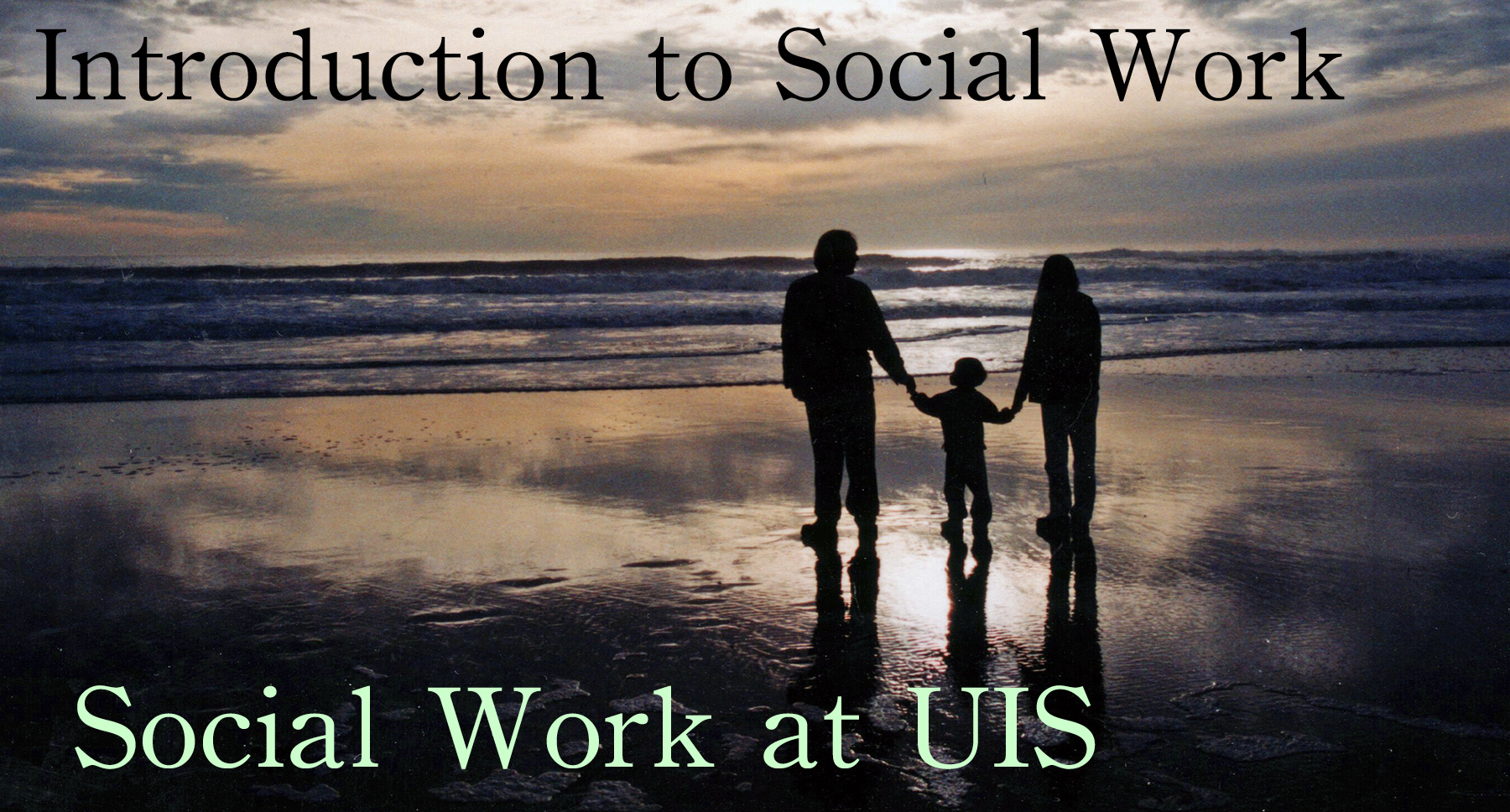This week class begins on February 9th (I’ll be in the classroom, but using the classroom computer camera to make the class available on Zoom simultaneously). Class usually runs from 2:00 to 3:30 or 4:00, giving students 60 to 30 minutes to post in the session discussion board; if you miss the class/zoom session, please put more time into the discussion board.
Zoom link is https://uis.zoom.us/j/96733201869?pwd=M0VZMWxPMkhSRlJXQXBQK09kYmZzdz09
Meeting ID: 967 3320 1869 Password: 322322
Class session lasts from February 9 at 2:00pm to February 16 at 1:59pm. with discussion boards continuing until February 23.
This page describes what you should do in this fourth session.
Objectives of this session
- Discuss Known to Social Services. Share our understanding of what is going on in the story.
- Consider how social support and self-care are important to avoid burn-out.
- Emphasize the importance of preserving life as the highest social work ethical value (even the lives of child molesters and people who abuse their children)
- Understand some of the arguments about western concepts of human rights being possibly not universal.
- Understand that the social work profession considers human rights, the Universal Declaration of Human Rights, and the associated human rights conventions to be universal.
- Consider the problem of how to improve accuracy in knowledge, and how to reduce uncertainty.
- Make sure everyone is working on their paper, and if they have not started, help push them to get started.
- Understand some of the basic theories and frameworks informing social work practice.
Time Budget for 9 hours
2h 30m Attending class / Zoom session, and posting in Canvas discussion board
1h 30m If you are reading the 5th edition of Days in the Lives of Social Workers, read chapters 3, 5, 7, 9, & 11. These are the chapters “Social Work in the Neonatal Intensive Care Unit,” and “Working with Pregnant Women in Public Health,” and “Elementary School Social Work,” “Social Work in the Commissioned Corps” and “Social Work in a Rural School District”. With the fourth edition, this corresponds to Chapters 2, 5, 7,11, & 13 (pages 39-44; 55-58; 65-70; 97-101; and 109-113).
4h Use the internet to find current articles and reports and information about your paper topic. Read about your topic. Work on the first draft of your paper. This four hour allocation to this task is serious. Soon, you will need to have a full first draft of your paper to share with classmates, and you need to put in hours of research and reading now, in these early weeks of the semester. Just imagine that this paper is due at the end of this month, and work on it with that level of diligence. You should have a complete paper (in first draft form) to share with classmates at the start of next month.
What will happen in the class meeting at the start of this session?
During our 2.5 hours, I expect to use time in the following ways:
- We will begin class with check-in, as always. Please be ready to speak for a minute or less about how you are doing and what you are thinking. You might share one highlight of the past week (in terms of news about your life); one thing you are looking forward to in the coming week (personal and/or related to class); and then share some major insight or idea or fact you learned in the previous week that you think is worth remembering and keeping in mind. As you should have picked a topic for your paper last week, this would be a good time to share what you are thinking of writing about in your paper.
- We will talk about the deaths and near-deaths in the novel Known to Social Services, and for each of those, we will consider what might have been done to preserve life.
- We will talk about human rights and cultural practices that seem to violate standards of universal human rights.
- “...Recognition of the inherent dignity and of the equal and inalienable rights of all members of the human family is the foundation of freedom, justice and peace in the world.” (Preamble of Universal Declaration of Human Rights)
- Persons seeking assylum are detained and treated as criminals
- Persons who are homeless are not provided housing; they are charged with crimes for sleeping in public or sleeping on private property
- Persons seeking assylum are detained and treated as criminals
- Older persons who had life-long low wages receive Social Security and SNAP benefits, as well as Medicare (Part A), but they still do not have sufficient financial resources to repair or maintain their home, run utilities to keep their home at a safe temperature on the hottest or coldest days, pay for the medications they need to maintain their health, or purchase food when their SNAP benefits are exhausted; they must chose between buying food and paying utility bills. They do not have sufficient resoruces to own and insure a car, and most public spaces are roads for cars, on which people are forbbiden from walking.
- Older persons who had life-long low wages receive Social Security and SNAP benefits, as well as Medicare (Part A), but they still do not have sufficient financial resources to repair or maintain their home, run utilities to keep their home at a safe temperature on the hottest or coldest days, pay for the medications they need to maintain their health, or purchase food when their SNAP benefits are exhausted; they must chose between buying food and paying utility bills. They do not have sufficient resoruces to own and insure a car, and most public spaces are roads for cars, on which people are forbbiden from walking.
- In Bloomington, Illinois, motorists with African ancestry or heritage are six times more likely to be stopped by police (this report, page 92), and 1.5 times more likely to get a citation (rather than a verbal warning).
- Agricultural workers are more likely to be working long hours (10-12 hours per day), and more likely to be injured on the job; the labor force is dominated by immigrants, and many of these immigrant workers do not have documentation allowing them to work in this country, or even be in this country.
- Young people living in West Pullman, North Lawndale, South Lawndale, or the Chatham neighborhoods in Chicago are far more likely to be injured or killed by gun violence. People living in those neighborhoods are frightened and worry about their safety when they are outside. In most parts of Chicago, there is very little risk of violence.
- In our society, many people are locked up for long periods of time. Nearly 226,000 are in federal prisons nad jails, 1.291 million are in state prisons, and 631 thousand are in local jails, with about 470 thousand of those awaiting trail. About half of those in state prisons were convicted for violent crimes; but fewer than a third of federal prisoners or inmates of local jails have been charged or convicted of violent crimes. In the United States, 0.662% of the population is incarcerated. That is similar to El Salvador (0.562%) and Cuba ((0.51%), but far higher than England and Wales (0.130%), France (0.093%), and Canada (0.104%); Are Americans really five times more criminal than English?
- Arranged marriages for young persons (15-18 years old)
- Education of girls
- Female genital mutilation
What must you read this week?
If you are reading the 5th edition of Days in the Lives of Social Workers, read chapters 3, 5, 7, 9, & 11. These are the chapters “Social Work in the Neonatal Intensive Care Unit,” and “Working with Pregnant Women in Public Health,” and “Elementary School Social Work,” “Social Work in the Commissioned Corps” and “Social Work in a Rural School District”. With the fourth edition, this corresponds to Chapters 2, 5, 7,11, & 13 (pages 39-44; 55-58; 65-70; 97-101; and 109-113).
Work on your paper.
Hopefully, you came up with a topic area to investigate last week. This week, you should narrow your focus and spend a couple hours reading articles about your topic. This will help you decide what sort of a paper you want to read. Use the Mendeley App (or an equivalent) to keep copies of the sources you’re using for the paper. Allocate about four hours to writing your paper and researching it.
Activities
I expect you to use about an hour of your time in this session to do the following activities (homework assignments). As our initial Zoom session may be fairly short, these activities are considered part of the class session.
- If you are taking the lab that goes with this course, you should get information to me about where you will probably do your service time this semester. That should be turned in to me nexet week.
- If you attend the Zoom class meeting, spend about an hour posting and reading posts in the Canvas discussion board. You should have time to post five-to-ten responses to prompts and posts by your classmates.
Working on your Assignments
You have no special assignments this week. Mainly, use your time outside of our class Zoom meeting and your reading of Days in the Lives of Social Workers to work on your paper.
Discussion Questions this week
Here are the discussion questions. You should have time to answer a few of them, and also respond to some of your classmates. Remember to devote at least an hour to the discussion board participation, even if you attended the Zoom class meeting.
-
Discussion Question 4-1:
Check in and let us know how you are doing. What has been on your mind? What's going on in your life. Many people may be tempted to say "not much" or "nothing interesting" or "I'm just working on my studies, and it's boring". If that is what you feel, try to find something to share with us. What was that homework or reading you were doing, and was anything you read worth knowing? What have you been eating? Have you been contemplating your mortality, or the meaning of it all? Share!
- Discussion Question 4-2: In Known to Social Services we meet or hear of characters such as Barry Spiggot, Roy Tranter, Dennis Jackson, Morris Powell, and the mysterious "NB". In actual child protective work, child neglect is a far more common form of maltreatment compared to abuse, and among the three forms of abuse, physical and emotional abuse are more common than sexual abuse. Yet, sexual abuse may occur at a rate of 1.8 per 1,000 children each year, with about 135,300 children experiencing harm-standard maltreatment of sexual abuse (according to the Fourth National Incidence Study of Child Abuse and Neglect estimates for 2005-06 as published in 2010). That is about the same as the 1986 NIS-2 estimates (1.9), and significantly lower than the 1993 NIS-3 estimates (3.2). Anyway, look up pedophilia and pedophile crimes. Do pedophiles often work in groups or connect with others to share in their perversions, or are most pedophiles doing their crimes on their own? Does the portrayal of English pedophiles in Known to Social Services seem like it could fit in with how Americans with pedophilia might behave? What do you know about the sexual abuse of children in our society? Are people trafficking young children to have them toil in the sex trade? What trends in our society do you think could explain the decline in sexual abuse between 1993 and 2006, and what trends do you think we might find if there is ever a NIS-5?
- Discussion Question 4-3:
By the end of the third session (start of this fourth session) you should have completed reading Known to Social Services. Imagine someone has asked you to recommend a book that would help them understand what social workers do. Would you or would you not recommend Known to Social Services and what is it about the book that makes you recommend it or not recommend it. If you do recommend it, what warning or suggestion will you give to the reader?
- Discussion Question 4-4:
You have completed the first book assigned in the course; you have read all of Known to Social Services. This is an open thread for you to comment on the book or ask questions.
- Discussion Question 4-5:
When Merle Edwards-Orr described social work in a neonatal intensive care unit, there is a lot about administrative work. He has to fill out forms for SSI. He has to help with the transfer of healthier infants who are ready to move out from the intensive care unit to less intensive care in hospitals closer to where their families are. He has to put notes in the files so that others will know what he has done.
In fact, this is a recurring theme in many of these "Days in the Lives" stories. Social workers do a lot of administrative work, fill out reforms, and write records of what they have done and why they did it to put in files.
What are some of the most important skills and attitudes a social worker would need to have, given the importance of filling out forms, handling administrative duties, and writing notes or reports? Are there some of these skills and attitudes that you ought to improve in your own repertoire of talents to prepare yourself for your career after you graduate?














